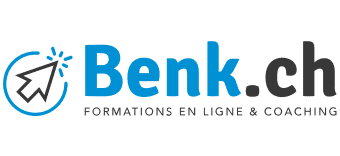Online training
Career transition after 40: tailor-made support from a career advisor

After the age of 40, considering a career change can benefit from the support of a career guidance counsellor. This trusted partner will help you assess your skills, explore new career opportunities, and define a realistic, personalized action plan. This approach ensures a smooth transition, tailored to your personal and professional aspirations, enabling you to navigate this chapter of your life with confidence.
Understanding career transition after 40
- Facts about career changes at this stage of life:
Professional reconversion at an older age is far from an isolated phenomenon. Indeed, numerous studies show that almost half of all adults consider a career change after the age of 40. This transition may be motivated by the search for personal satisfaction, the desire to take on new challenges, or the need to adapt skills to changes in the job market.
- Advantages of retraining at this age (maturity, experience, etc.).
There are many advantages to retraining after the age of 40. With their wealth of experience, people in their forties and over bring a wealth of knowledge and a unique perspective to new roles. Their maturity often enables them to handle the stress and uncertainties of transition with greater resilience. What’s more, since they already have a good understanding of their strengths and weaknesses, they can plan their retraining more strategically.
The main obstacles to retraining after the age of 40
The decision to change careers after the age of 40 is often accompanied by significant challenges. These barriers are not only linked to the practical aspects of learning new skills, but also to societal perceptions and stereotypes.
- Stereotypes and social perception: One of the biggest difficulties faced by those wishing to retrain later in life is the stereotype that career opportunities should diminish with age. This perception can sometimes be internalized by the candidates themselves, affecting their confidence and motivation. What’s more, employers may be reluctant to invest in training for older employees, under the mistaken assumption that they will be less adaptable or close to retirement.
- Adapting to today’s job market: The job market is changing fast, and emerging technologies can make certain skills obsolete. For professionals over 40, keeping up to date can require a significant investment in time and resources for continuing education.
- Acquiring new skills : Learning a new skill or switching to a completely different sector often requires a period of intensive learning. This process can be intimidating and physically demanding, especially if it’s been a long time since the candidate attended a formal educational environment.
Testimonial :
Despite these challenges, many testimonials show that successful retraining is not only possible, but also rewarding.
For example, 38-year-old Alana, after encountering various professional problems, turned to a career advisor. She chose Benk. Following an assessment and follow-up coaching, she was able to enter a new training course in the health sector: “I didn’t know how to reorientate myself following various problems, so I called on Benk for an assessment which opened my eyes to my future prospects. I’ve now started a new training course in healthcare, which suits me perfectly. “
The role of the Benk career advisor
Retraining after the age of 40 can be a complex process, often requiring a profound rethink and a significant reorientation. That’s where career coaching comes in, as an invaluable ally on this journey of transformation.
- Personalized services at Benk :
At Benk, the services offered in this context are customized to suit each profile, ranging from a skills assessment to comprehensive support including coaching and advice on further training.
- Assessment of specific needs :
Benk consultants use a variety of tools to assess the specific needs of each individual. They generally begin with a comprehensive assessment to define professional objectives in line with the customer’s interests and skills. Using personality tests and interest questionnaires, they help individuals better understand their aspirations and align these with the realities of today’s job market.
- Aligning aspirations with the job market :
Benk’s methodology also includes support in updating CVs and cover letters, as well as preparing for job interviews, ensuring that customers not only aim for a new career, but are also prepared to succeed in this new path.
- Preparation for retraining :
This role of career advisor is crucial to successfully navigating the challenge of retraining after the age of 40, offering not only strategic advice but also indispensable moral support.
Considering a career change after the age of 40 should not be seen as a risk, but rather as a tremendous opportunity for personal and professional growth. It’s a chance to realign your career with your current passions, and build on your wealth of experience.
If you’re ready to explore this path, don’t hesitate to make an appointment with a career advisor. At Benk, our experts are there to support you every step of the way. For more information and to start your new professional adventure, visit our Benk website.
This can be the beginning of an exciting and rewarding chapter in your life. Dare to take the first step towards change today!
